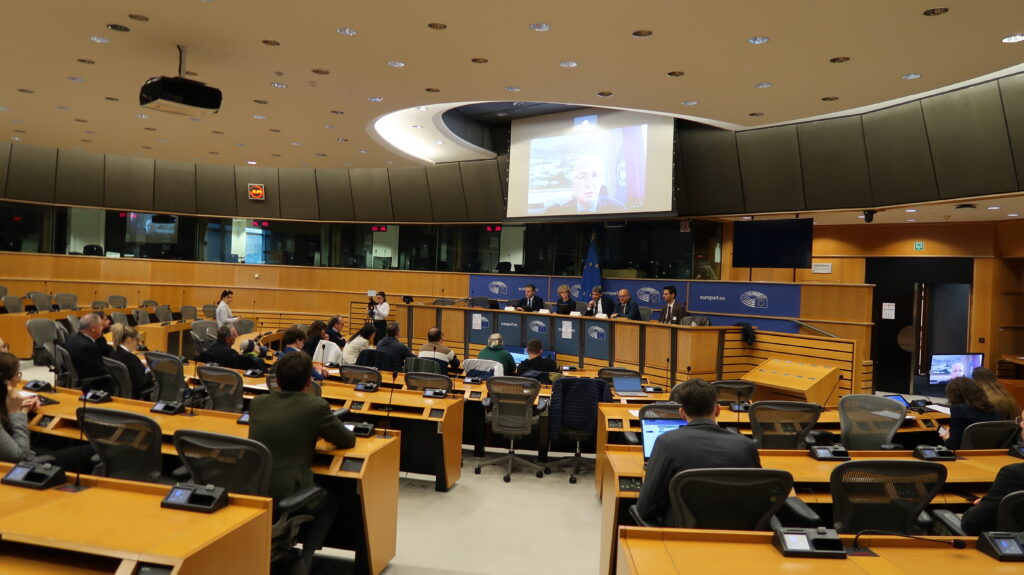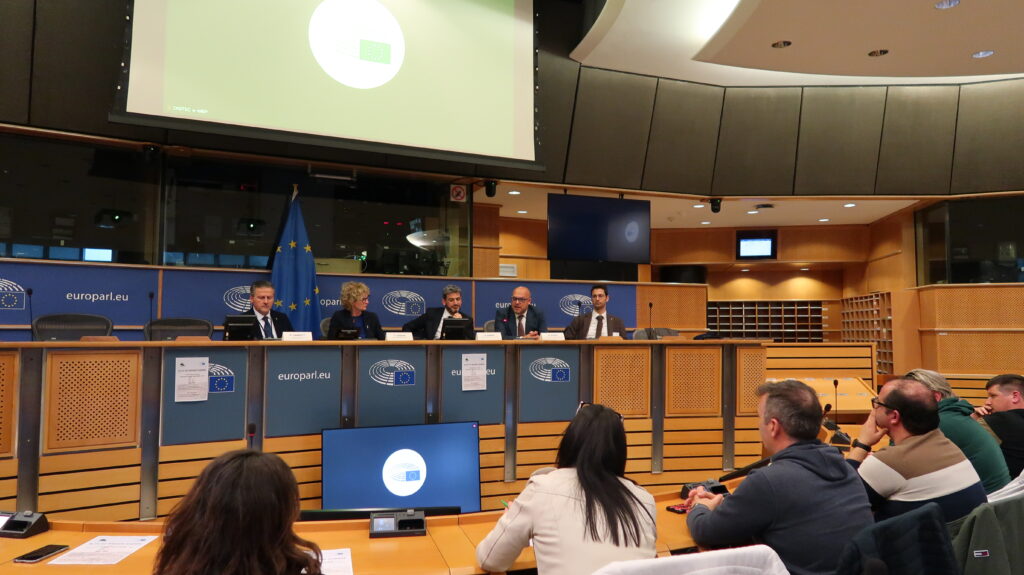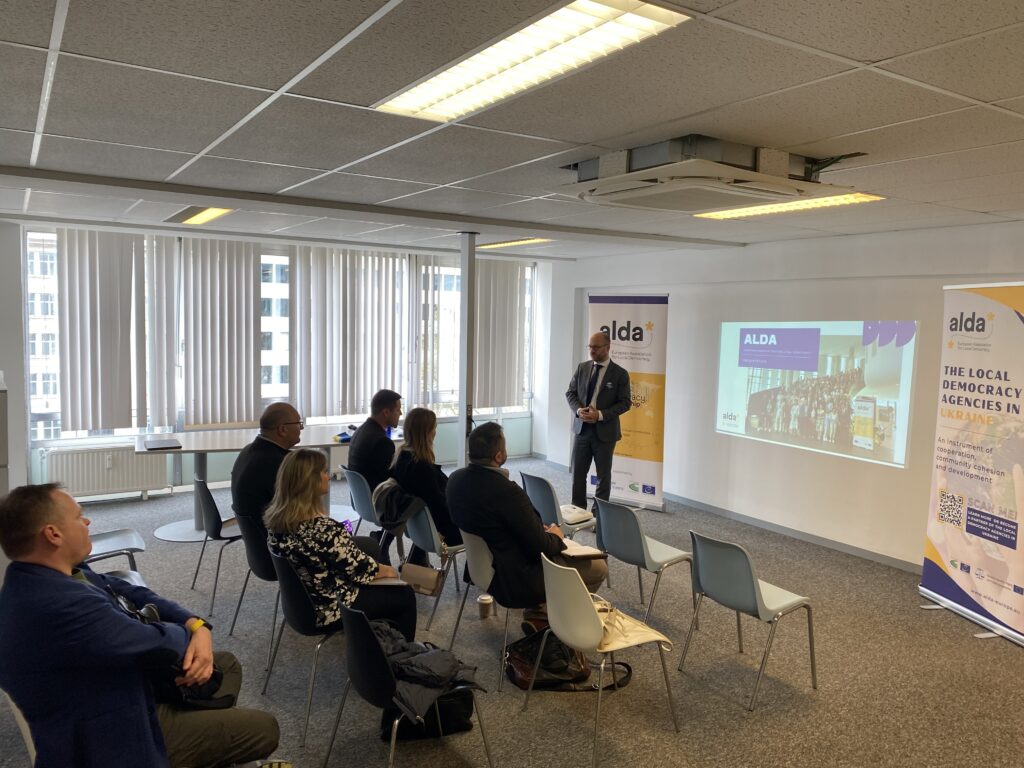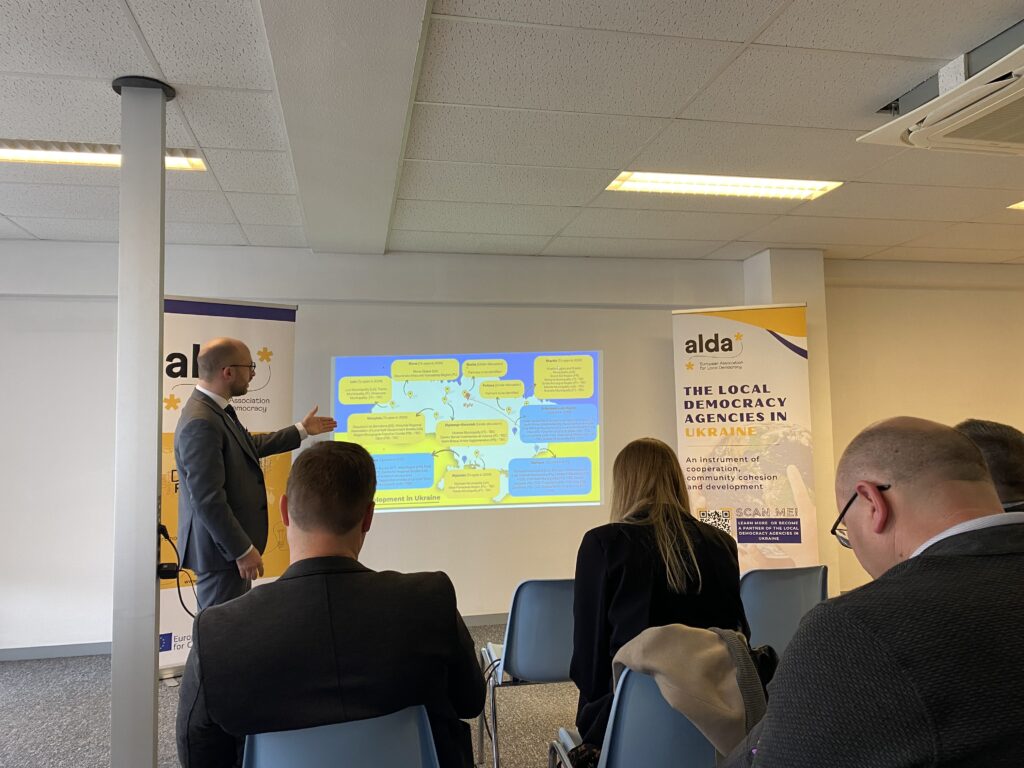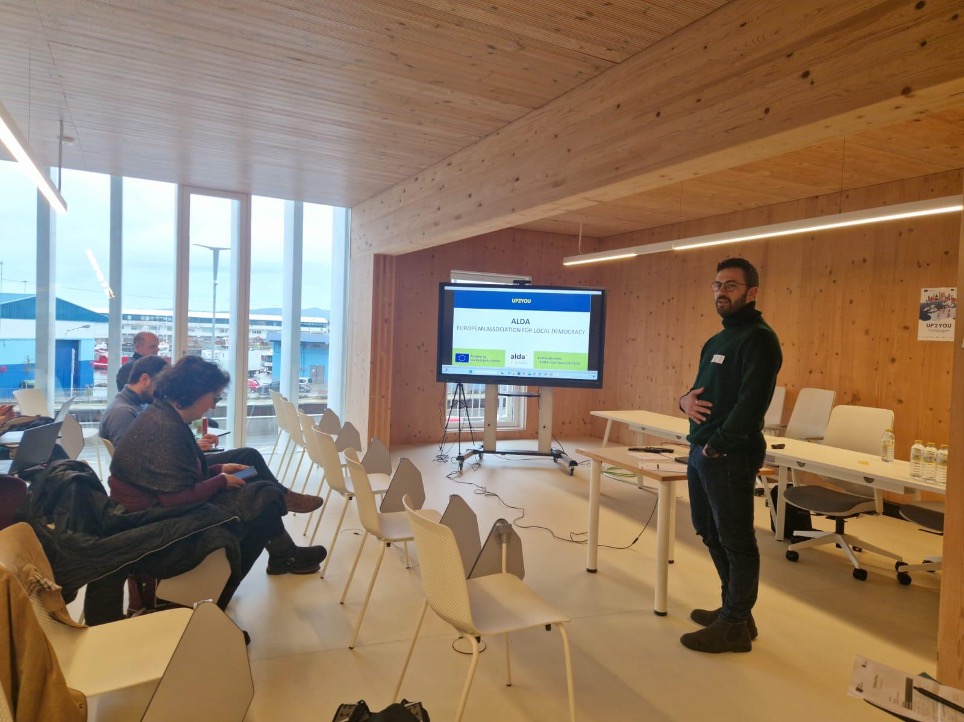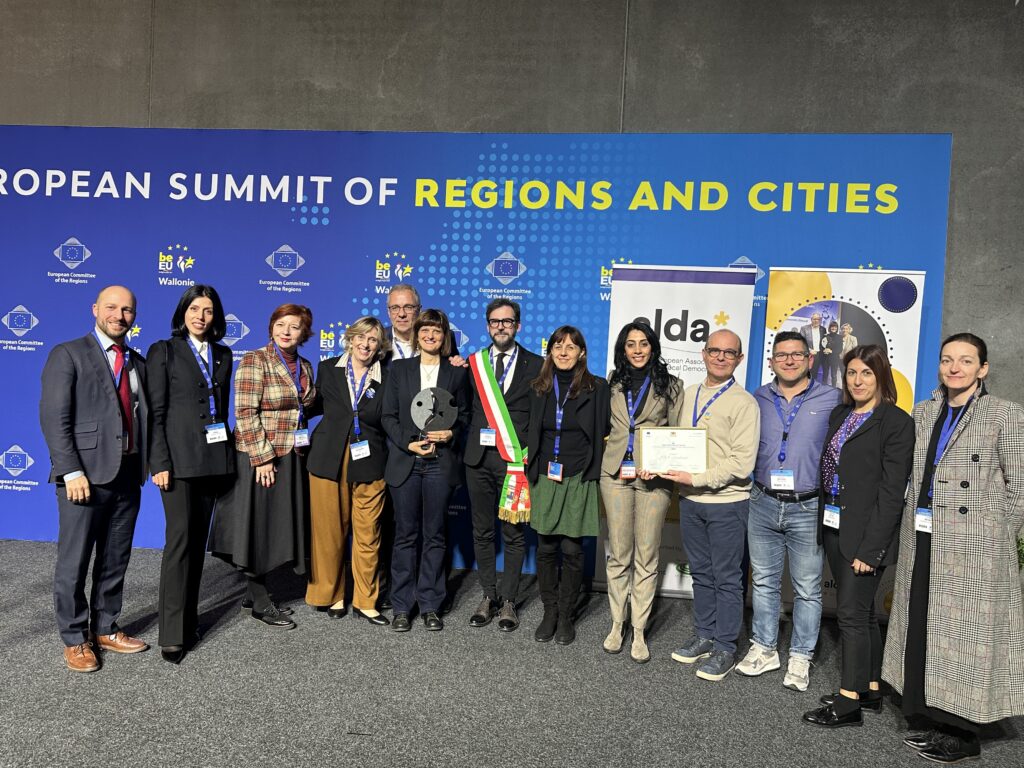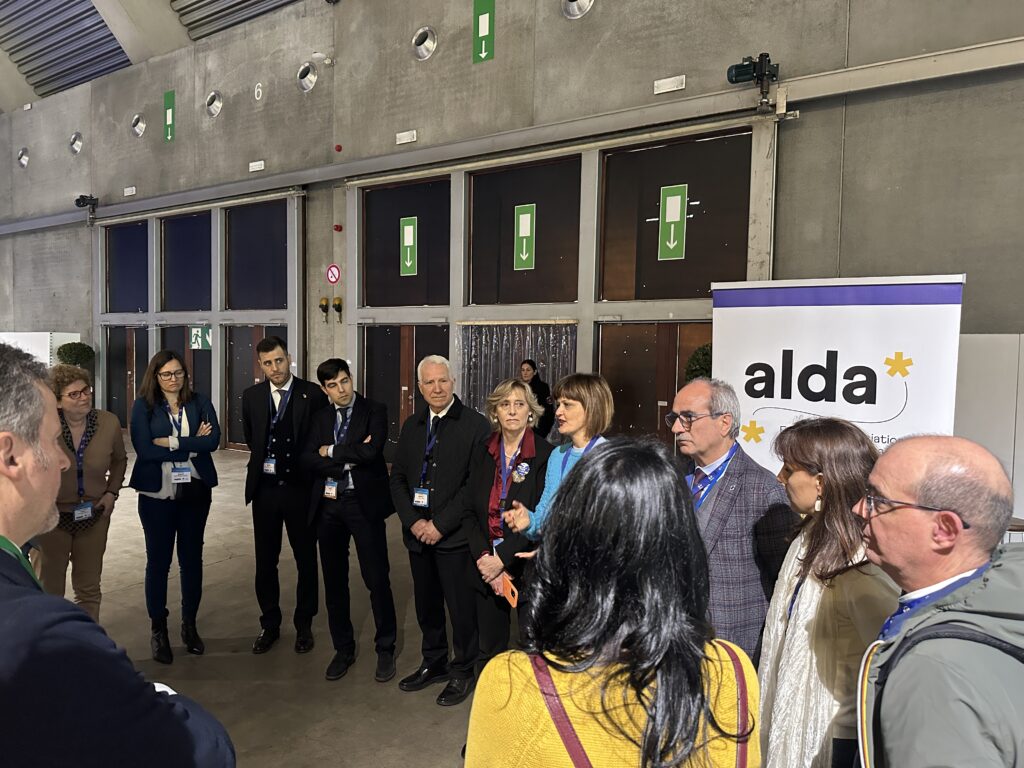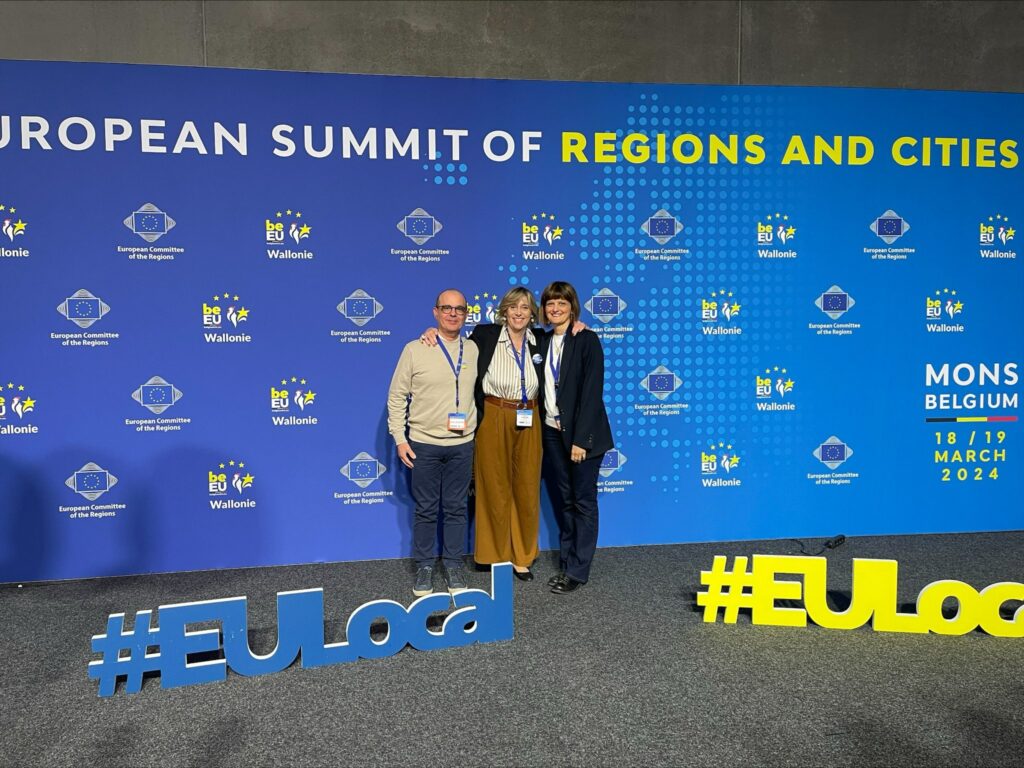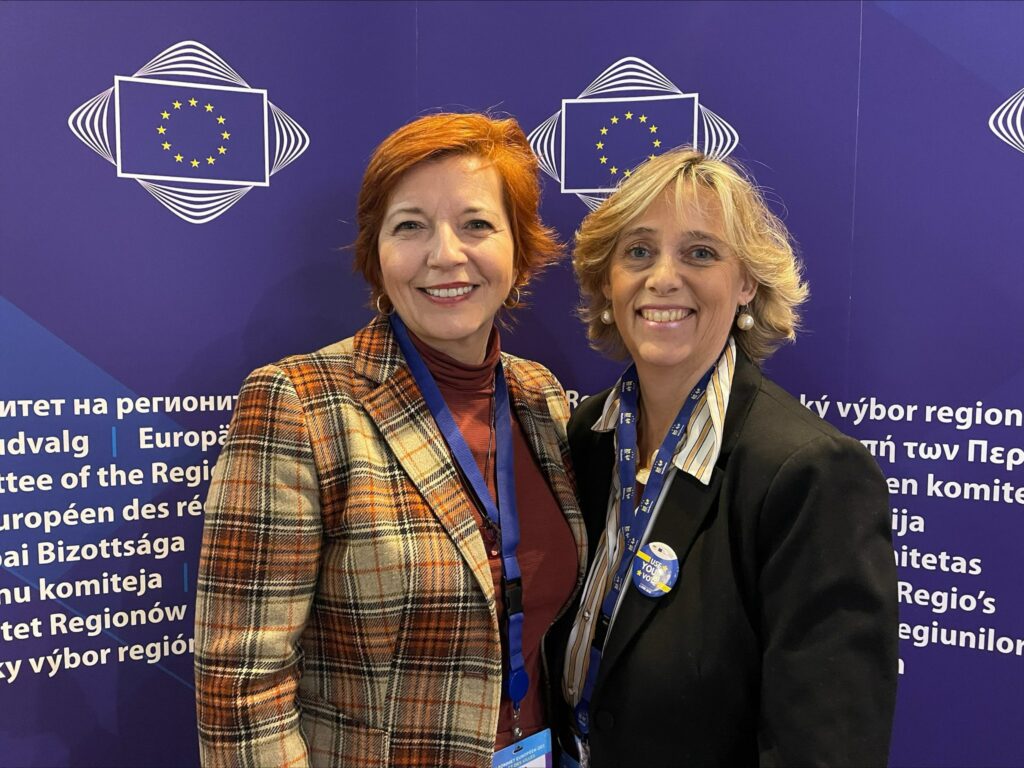On Thursday, 11 April 2024, in Brussels (Belgium), at the European Parliament took place the presentation of the Alta Via della Grande Guerra (AVGG) project, an initiative of cohesion and promotion of the Vicenza mountains that retraces some emblematic places of the First World War that today represent a real “open-air museum” of the Great War.
Invited by the Honourable Mrs. Paola Ghidoni, among the speakers of the meeting Mr. Andrea Nardin, President of the Province of Vicenza, Mr. Roberto Ciambetti, President of the Council of the Veneto Region and Mr. Marco Boaria, Director of Programmes and Corporate Strategy of ALDA and CEO of ALDA+.
With the video contribution of the President of the BIM Bacchiglione Consortium, Mr. Valter Orsi, and the letter of Senator Mrs. Mara Bizzotto, the event explored the several opportunities provided by the charming itinerary of the AVGG, emphasising its significant importance from a historical-environmental point of view and the promotion of eco-sustainable tourism.
A path, the Alta Via della Grande Guerra which spans about 200 kilometres among nature, CAI trails and Vicenza peaks, connecting the four symbolic military memorial sites in the Province of Vicenza – Pasubio, Cimone, Asiago and Grappa – places of deep reflection and memory of the events of the First World War.
The Alta Via della Grande Guerra represents a significant example of collective participation and collaboration to create a stronger, more inclusive and unified Europe
In his speech, Mr. Marco Boaria emphasised the extraordinary relevance of the AVGG project, which goes beyond mere tourism and hiking, encompassing fundamental elements such as community participation, numerous local and international development prospects and the promotion of European values of memory, peace and unity.
Furthermore, Mr. Nardin also highlighted the shifting nature of the route, from a place of war to a space of peace and community, recalling the daily commitment needed to ensure freedom and democracy.
In charge of promoting the project, ALDA+ actively supports this historical and naturalistic recovery path in the Vicenza Pre-Alps, promoting the role of local entities and the indissoluble bond with the local community.
As a consequence, the Alta Via della Grande Guerra represents a significant example of collective participation and collaboration to create a stronger, more inclusive and unified Europe.
🇮🇹 ITALIAN VERSION
L’Alta Via Della Grande Guerra arriva al Parlamento Europeo: tra natura, storia e promozione dei valori europei
Giovedì 11 aprile 2024, a Bruxelles (Belgio), presso il Parlamento Europeo, si è tenuta la presentazione del progetto Alta Via della Grande Guerra (AVGG), un’iniziativa di coesione e promozione della montagna vicentina che ripercorre alcuni luoghi emblematici del primo conflitto mondiale che oggi rappresentano un vero e proprio museo all’aperto della Grande Guerra.
Su invito dell’Onorevole Paola Ghidoni, tra i protagonisti dell’incontro Andrea Nardin, Presidente della Provincia di Vicenza, Roberto Ciambetti, Presidente del Consiglio della Regione Veneto e Marco Boaria, Direttore dei Programmi e della Strategia Aziendale di ALDA e CEO di ALDA+.
Assieme al contributo video del Presidente del Consorzio BIM Bacchiglione, Valter Orsi, e alla lettera della Senatrice Mara Bizzotto, l’evento ha permesso di esplorare le numerose opportunità offerte dall’affascinante itinerario dell’AVGG, enfatizzandone la grande importanza dal punto di vista storico-ambientale e della promozione del turismo eco-sostenibile.
Un percorso, quello dell’Alta Via della Grande Guerra, che si estende per circa 200 chilometri tra natura, sentieri CAI e vette vicentine, collegando i quattro sacrari militari simbolici della Provincia di Vicenza – Pasubio, Cimone, Asiago e Grappa – luoghi di profonda riflessione e ricordo degli eventi della Prima Guerra Mondiale.
L’Alta Via della Grande Guerra rappresenta un esempio significativo di partecipazione e collaborazione collettiva, per costruire un’Europa più forte, inclusiva ed unita
Nel suo intervento, Marco Boaria ha sottolineato l’importanza straordinaria del progetto AVGG che va oltre il semplice ambito turistico ed escursionistico, raccogliendo in sé elementi fondamentali come la partecipazione comunitaria, le numerose prospettive di sviluppo locale ed internazionale e la promozione dei valori europei di memoria, pace ed unità.
Inoltre, il Presidente Nardin ha tenuto ad evidenziare anche il carattere mutevole del percorso, da luogo di guerra a spazio di pace e condivisione, richiamando l’impegno giornaliero necessario nel garantire la libertà e la democrazia.
Incaricata di promuovere il progetto, ALDA+ sostiene attivamente questo percorso di recupero storico e naturalistico delle Prealpi vicentine, promuovendo il ruolo delle entità locali ed il legame indissolubile con la comunità locale.
Di conseguenza, l’Alta Via della Grande Guerra rappresenta un esempio significativo di partecipazione e collaborazione collettiva, per costruire un’Europa più forte, inclusiva ed unita.
